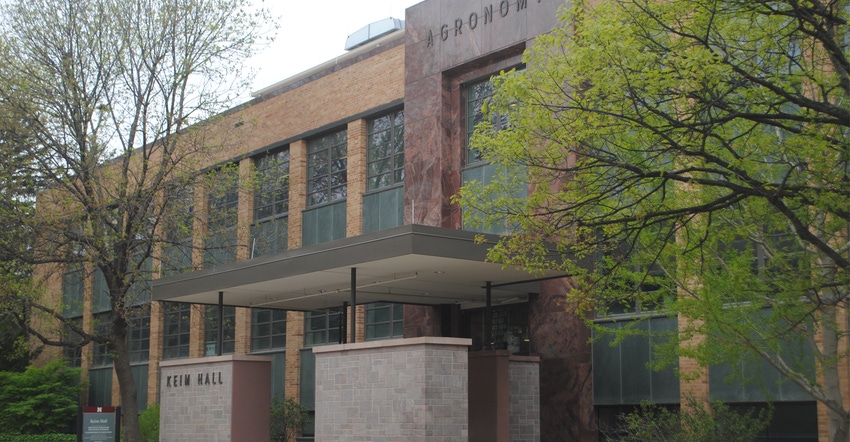
Universities are at the forefront of technological development in agriculture, fostering creativity among students and faculty members.
The recent OnRamp Agriculture Conference — presented in part by the Nebraska Department of Economic Development; The Combine, a statewide initiative supporting high growth entrepreneurs in food and ag; and gener8tor, a startup accelerator and turnkey platform for connecting founders, investors and corporations — featured a panel discussion from Midwestern universities about their own entrepreneurship and startup programs, some of their successes and the challenges that slow things down.
Engler program
Tom Field, director of the Engler Agribusiness Entrepreneurship Program at the University of Nebraska, said that UNL’s program was initiated because of a question posed by the parents of a recruit. The parent asked, “Are you going to turn my child into an employer or an employee?”
With financial support from ag entrepreneur Paul Engler, a new program was founded to build people who could build companies that were going to contribute to great communities, Field said.
“The core of our whole program at UNL, which by and large is focused on undergraduates, a few grad students and alumni in the work that we do,” Field said, “we had to get really intentional about being purpose driven.”
He said, “Our whole model is to embolden our people on the courageous pursuit of their purpose through the art and practice of entrepreneurship.”
Once that mode was established within the program, Field noted that it was amazing how many companies — big, small and medium, as well as nonprofits, private folks and people within the financial sector — wanted to help out, because they love that notion of the purpose-driven entrepreneur.
They also love the fact that the program could build a whole new generation of employers who wanted to build communities as part of the work that they do. “That’s our unique little approach,” Field said, “that we have merged into a traditional model of higher education.”
Cohort is crucial
Kevin Kimle, Rastetter Chair of Agricultural Entrepreneurship at Iowa State University, heads up a rural academy program that allows students to work on their entrepreneur business opportunities over the summer months.
“The first step in working with undergraduate students, which is a lot of what we do, is approaching entrepreneurship as a life skill, as a mindset,” he said. “Some of that can come from courses and certain traditional programs at a university, but several years ago, we discovered a lot of students have an existing internship or they go back to the farm in the summer, but they would like to continue to work on their business.”
ISU started the Rural Entrepreneurship Academy, which is a part-time program where the students are set up in a cohort where they can work on their businesses.
“It’s really pretty basic,” Kimle explained. “We have the students work on one question or problem each week, and they talk to two other people to try to help them solve the challenge. Being a part of a cohort, whether it is in the academy or back on campus, is a great way to help entrepreneurial young people continue to make progress.”
Kimle said mentoring is at the heart of their academy program. “Mentoring is at the core of everything we do, because it is the people you meet that change your life,” he said.
At the University of Illinois, Kimberlee Kidwell, dean of the College of Agricultural, Consumer and Environmental Sciences, said having a research park contingent to campus has fostered a strong spirit of innovation for entrepreneurial students on campus.
“The students themselves can have hands-on learning partnerships with industry at our research park,” Kidwell said.
Speed things along
The challenges for universities, agreed on by all three panelists, can be in paperwork involved in startup businesses, in licensing and patenting, and carrying some of the startups from faculty or students into commercialization. Also, making sure faculty members are on board with entrepreneurial innovation is crucial, Kidwell added.
“The crisis of the pandemic moved us along faster,” she said. “We learned by doing that moving forward we can be nimble. We have learned that we can move faster over the last year and a half.”
Kimle said that the community aspect of a student cohort is fun to watch. Building such a community of innovation between agriculture faculty, students and investors, and private industry is the goal of each of the entrepreneurial programs at UNL, ISU and Illinois, according to the panelists.
About the Author(s)
You May Also Like






